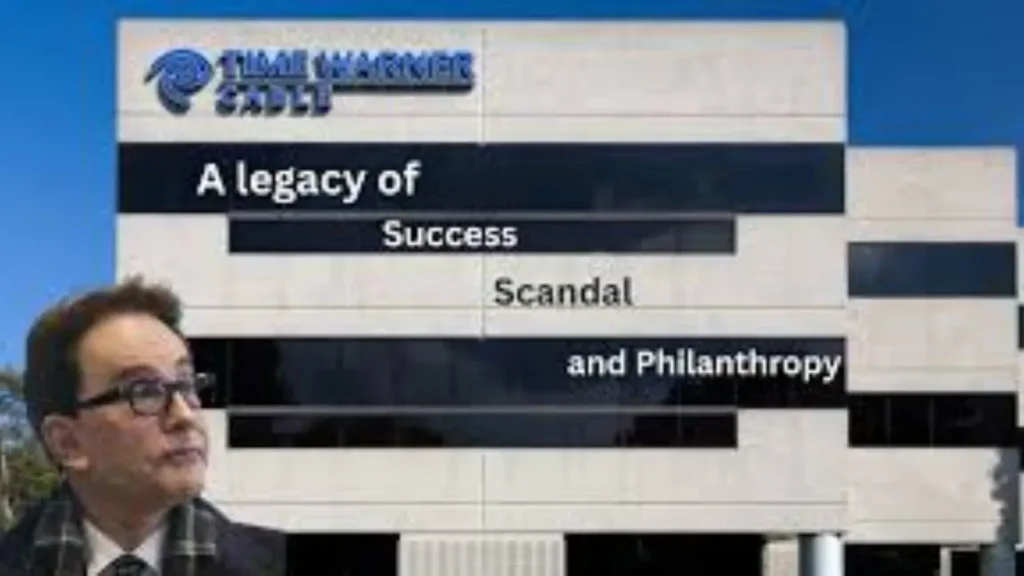Ty Warner’s Legal Legacy.When most people hear the name Ty Warner, they think of Beanie Babies—the wildly popular plush toys that took over the 1990s and made Warner a billionaire. But while his stuffed animals became household treasures,
Warner’s personal and professional journey also carries a significant legal and business legacy. From tax controversies to strategic real estate acquisitions, Warner’s story shows how legal challenges and business deals shaped not only his fortune but also his public reputation.
Ty Warner’s Legal Legacy-Overview
| Article on | Ty Warner’s Legal Legacy: Behind the Billionaire’s Business Deals |
| Main Business | Creator of Beanie Babies (Ty Inc.) |
| Other Ventures | Luxury hotels, golf courses, high-end real estate |
| Legal Issues | Major tax evasion case in 2013; fines and penalties |
| Financial Impact | Paid over $80 million in penalties and fines |
| Legacy | Billionaire toy mogul with a complex public image – success mixed with legal controversies |
The Rise of Beanie Babies
In the early 1990s, Ty Warner introduced Beanie Babies, small plush toys with plastic pellets inside that gave them a unique, floppy feel. What set them apart was not just their cute designs but clever marketing strategy Warner. By “retiring” certain Beanie Babies and limiting production, Warner created a madness. Collectors scrambled to buy the toys, sometimes treating them like investments.

At the height of the craze in the late 1990s, Beanie Babies accounted for an estimated 10% of eBay’s sales. Warner became a billionaire almost overnight. But while his empire grew, so did the complexity of managing wealth on such a massive scale. And with great fortune often comes great scrutiny.
The Legal Storm: Tax Evasion Case
Warner’s biggest legal battle came in 2013 when he was charged with federal tax evasion.
What Happened?
- Warner had hidden millions of dollars in a Swiss bank account at UBS.
- By not reporting this money to the U.S. government, he avoided paying taxes.
- The IRS crackdown on offshore accounts eventually caught up with him.
The Consequences
- Warner admitted guilt and pleaded guilty in federal court.
- He was ordered to pay a civil penalty of around $53 million and an additional $27 million in back taxes and interest.
- Surprisingly, despite the seriousness of the crime, Warner avoided prison time. Instead, he received two years of probation and community service.
Why the Case Mattered
The Ty Warner tax case became symbolic for a few reasons:
- High-Profile Example
Warner was one of the wealthiest Americans to face such charges, putting a spotlight on offshore tax evasion. - Message from the IRS
The case showed that hiding money abroad was no longer a safe bet, even for billionaires. - Public Reaction
Some sympathized with Warner because of his charitable donations, while others felt justice had been softened for a wealthy businessman.
Beyond Beanie Babies: Business Deals and Real Estate Empire
Warner didn’t just stick to toys. Over the years, he invested heavily in real estate and luxury properties.
Notable Properties:
- Four Seasons Hotel, New York: One of the most luxurious hotels in the city.
- The Biltmore Santa Barbara: A historic and prestigious California resort.
- Golf Resorts: Warner owns several high-end golf courses across the U.S.
Ty Warner’s Legal Legacy in Business
Warner’s legal legacy isn’t just about his tax evasion case. It’s also about how he conducted business deals:
- Aggressive Strategy
Warner was known for secrecy and careful control over his brand. He often bypassed traditional advertising and relied on scarcity tactics. - Legal Negotiations in Real Estate
His property acquisitions involved navigating legal red tape, preservation laws, and high-stakes contracts. - Reputation Management
After his tax case, Warner had to carefully handle his image. He leaned on philanthropy and the nostalgia of Beanie Babies to soften public criticism.
The Human Side: Philanthropy and Public Perception
One of the reasons Warner avoided prison may have been his record of giving. He donated millions to children’s hospitals, educational programs, and disaster relief.
- After 9/11, Warner donated Beanie Babies to comfort children affected by the tragedy.
- He has supported numerous charities, often quietly, without major publicity.
Lessons from Ty Warner’s Story
Ty Warner’s legal legacy offers lessons for business leaders, entrepreneurs, and everyday people:
- Wealth Doesn’t Exempt You from the Law
Even billionaires can face massive penalties when breaking the rules. - Transparency Matters
Hiding wealth or cutting corners often backfires. Long-term success depends on trust and compliance. - Reputation is Fragile
Years of success can be overshadowed by a single legal scandal. Protecting your reputation is as important as building wealth. - Philanthropy Can’t Erase Mistakes but It Helps
Warner’s charitable giving didn’t excuse his crime, but it did shape how the public and courts viewed him.
| Home Page | https://sbbarristers.com/ |
FAQs for Ty Warner’s Legal Legacy
Who is Ty Warner?
Ty Warner is the billionaire creator of Beanie Babies and the founder of Ty Inc. He is also a major investor in luxury hotels, resorts, and real estate.
What legal issues did Ty Warner face?
In 2013, Warner pleaded guilty to federal tax evasion for hiding millions in a Swiss bank account. He paid over $80 million in fines and penalties but avoided prison.
How did Ty Warner become a billionaire?
He became wealthy in the 1990s by selling Beanie Babies, a line of collectible plush toys that created a massive craze worldwide.
